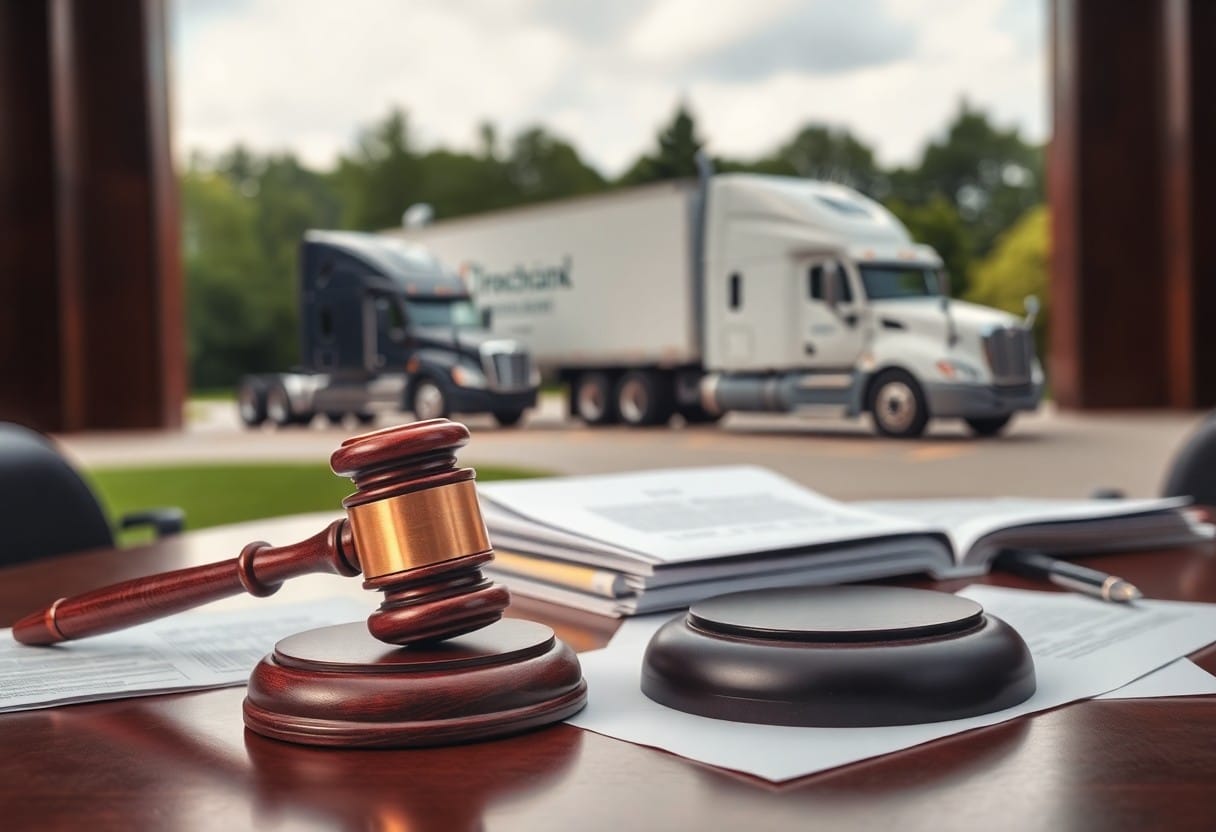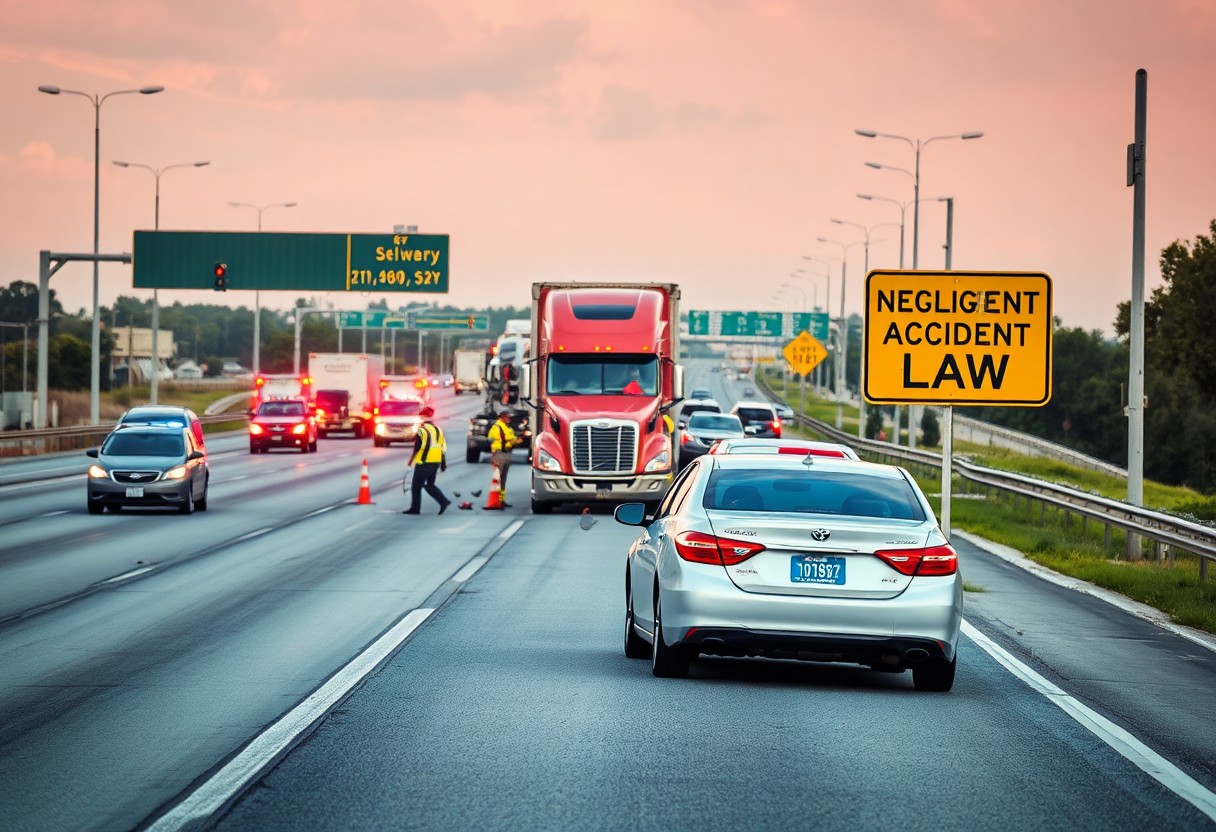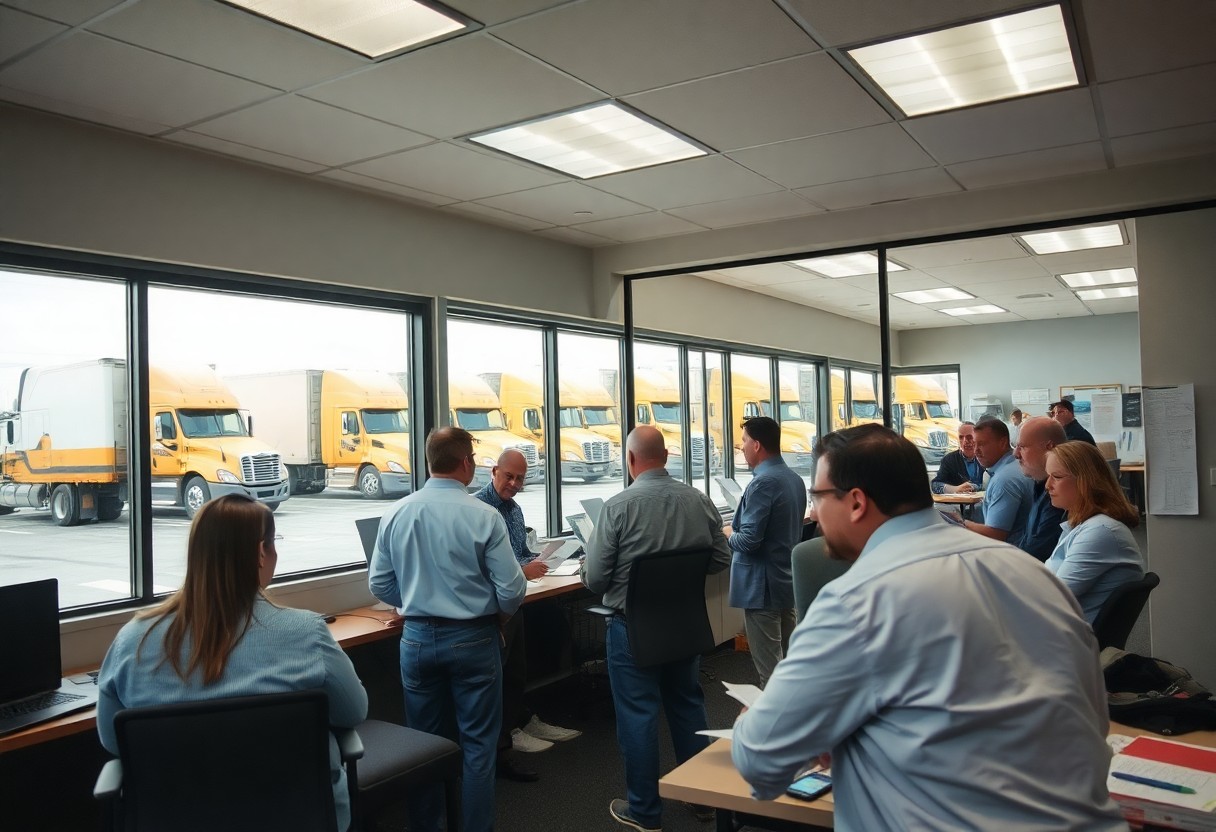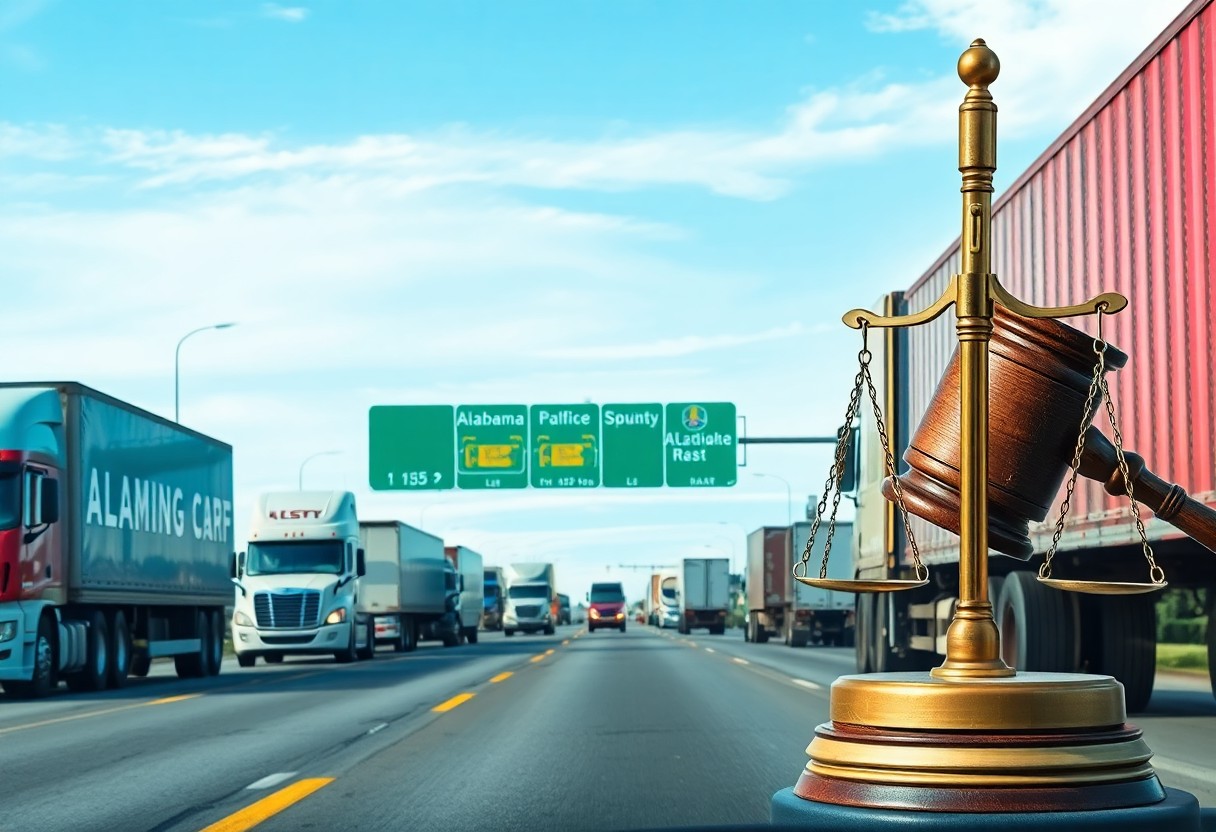Alabama’s negligence laws can significantly impact your ability to seek justice after a trucking accident. Understanding how these laws work is crucial, as they often seem to protect trucking companies more than victims like you. You may feel overwhelmed by the complexities of liability and fault in these cases, which can directly affect the outcome of your claim. This post will explore into key aspects of Alabama’s negligence laws and explain why they create an environment that can disadvantage victims while favoring large trucking corporations.
Overview of Alabama’s Negligence Laws
Alabama’s negligence laws are complex and often lean in favor of trucking companies, putting victims at a disadvantage. As you navigate the legal landscape after an accident, understanding how these laws work can help you identify your options for seeking compensation. This state has a unique approach to negligence that can directly impact the outcome of your case.
Definition of Negligence
On a fundamental level, negligence refers to the failure to exercise reasonable care, resulting in harm to another person. In Alabama, proving negligence involves demonstrating that the other party had a duty of care, breached that duty, and directly caused your injuries. Understanding these components is vital when pursuing a claim against a trucking company.
Comparative vs. Contributory Negligence
Among the key aspects of Alabama’s laws is the differentiation between comparative and contributory negligence. Alabama follows a contributory negligence system, which means that if you are found to be even 1% at fault for the accident, you may be barred from recovering any damages. This is starkly different from comparative negligence systems in other states, which allow for partial compensation based on the degree of fault.
Comparative vs. Contributory Negligence
| Comparative Negligence | Contributory Negligence |
|---|---|
| Allows recovery if you are less than 50% at fault. | No recovery if you are found at fault, even 1%. |
| Reduces your damages by your percentage of fault. | You receive no compensation. |
In addition to these principles, the contributory negligence rule in Alabama can significantly affect your ability to secure compensation for your injuries. If you have any share in the fault, regardless of how minimal, you may lose the right to pursue a claim. This fact highlights the importance of presenting a strong case that clearly assigns fault to the trucking company, which can be vital for your chances of recovery.
Factors Influencing Impact on Compensation
| Factor | Impact on Compensation |
|---|---|
| Your percentage of fault | Diminishes amount recoverable. |
| Evidence supporting fault | Strengthens your case for damages. |
The Impact of Negligence Laws on Trucking Companies
If you’ve ever been involved in a truck accident, you may be surprised to find how Alabama’s negligence laws tend to favor trucking companies. These laws can limit the liability of trucking firms, allowing them to evade full accountability for accidents they cause. The result is often an uphill battle for victims seeking justice, as they must navigate a complex legal landscape that shields these powerful corporations.
Legal Protections for Trucking Firms
Negligence laws in Alabama provide various protections for trucking companies, including the ability to argue comparative fault in many circumstances. This often leads to reduced financial responsibility for the trucking firm, shifting more of the burden to the victim. Jurors may also find it harder to impose penalties on companies due to these statutory defenses, enabling them to settle claims for much less than the actual damages incurred.
Case Studies Highlighting Favoritism
Above all, examining historical case studies demonstrates how negligence laws can favor trucking companies over victims. You may find it unsettling that many incidents reveal significant disparities in the outcomes for victims versus trucking firms.
- In a 2019 case, a victim suffered $1 million in damages, yet the trucking company was only required to pay $250,000 due to comparative negligence arguments.
- A 2020 accident compromised multiple vehicles, with a jury awarding $500,000 to the victims while the trucking company avoided penalties through procedural loopholes.
- In 2021, a transportation company faced a wrongful death lawsuit but was only liable for 20% of the costs, underscoring the limitations of liability for larger firms.
- Data from 2022 indicates that trucking companies successfully reduced liability in 75% of cases, significantly affecting the settlements awarded to victims.
Consequently, these case studies serve as a strong testament to the inequalities embedded within Alabama’s negligence laws. You might find that victims’ struggles highlight the systemic issues that favor truck companies, ultimately placing the burden on individuals striving to recover losses and seek accountability. These patterns show how the legal framework can create barriers, influencing the outcomes of personal injury claims adversely for those harmed.

Challenges Faced by Victims
It can be incredibly daunting for victims of truck accidents in Alabama. The complexities of negligence laws, combined with the aggressive tactics employed by trucking companies, can leave you feeling overwhelmed and uncertain about your rights and the compensation you deserve. Often, the emotional and physical toll of the accident adds to the uphill battle you face in seeking justice.
Financial Burden and Medical Expenses
At the heart of the struggle for accident victims lies the financial burden of mounting medical expenses. Injuries sustained in accidents can lead to extensive medical treatment, rehabilitation, and lost wages, placing an immense strain on your financial stability. It can be challenging to cope with these costs, especially when the accident was caused by someone else’s negligence.
Difficulty in Pursuing Legal Action
Expenses related to pursuing legal action can become overwhelming, especially when faced with the resources of trucking companies. The legal process often involves significant costs for expert testimony, legal fees, and court expenses, which can deter you from taking the necessary steps to seek compensation.
Understanding the legal landscape can be daunting. Many victims find themselves at a disadvantage due to the trucking companies’ substantial legal teams, who are well-versed in navigating the system to protect their interests. This imbalance can make you feel isolated and unsure of where to turn for help, as the complexities of filing a claim and proving negligence can be intricate and require expert legal knowledge.
Special Regulations for the Trucking Industry
All trucking companies in Alabama must adhere to a complex set of regulations that govern their operations. These regulations are designed to ensure safety on the roads, requiring companies to comply with standards related to vehicle maintenance, driver qualifications, and operational procedures. Unfortunately, these regulations often favor trucking companies, as they may use them to evade accountability when accidents occur, further complicating the pursuit of justice for victims.
Federal vs. State Regulations
Below is a discussion on how federal and state regulations interact within the trucking industry. Federal laws introduced by agencies like the Federal Motor Carrier Safety Administration (FMCSA) set the baseline for safety and operation standards. However, Alabama’s state regulations can sometimes be less stringent, allowing trucking companies to exploit these variances in ways that might hinder victim compensation efforts.
Compliance and Accountability Issues
Special challenges arise regarding compliance and accountability among trucking companies. Due to varying standards at the federal and state levels, companies may operate in a way that skirts responsibility when accidents happen. This inconsistency can complicate your ability to hold them accountable for negligence, leaving victims feeling unsupported and vulnerable in their pursuit of justice.
Issues beyond regulations often contribute to the difficulties in enforcing accountability. Many trucking companies may not adhere to the highest safety standards, leading to inadequate training for drivers and poor vehicle maintenance. When accidents occur, the burden of proof falls on you, the victim, which can be overwhelming. Additionally, you may find it hard to navigate the legal landscape, especially if companies use complex corporate structures to obscure responsibility. This lack of clear accountability can significantly impact your case, making it imperative to work with experienced legal counsel who understands these nuances.
The Role of Insurance Companies
Now that you understand Alabama’s negligence laws, it’s important to examine how insurance companies impact the outcomes for victims of truck accidents. These firms often hold significant influence over the negotiations following an accident, shaping how claims are handled and what compensation victims ultimately receive. Their practices can significantly dictate the balance of power in these cases, affecting your chances of securing fair compensation.
Insurance Practices Favoring Trucking Companies
Around the nation and especially in Alabama, insurance companies frequently implement practices that prioritize the interests of trucking companies over those of accident victims. This can include aggressive tactics to minimize payouts or delay settlements, leaving you navigating a complicated maze where your rights might unintentionally take a backseat to corporate interests.
Settlements and Victim Rights
An often-overlooked aspect of trucking accidents is how settlements are structured and your rights as a victim. Insurance companies may push for quick settlements that do not fully account for your ongoing medical costs, lost wages, and additional damages. Understanding the implications of these settlements is vital for ensuring you don’t inadvertently waive your right to appropriate compensation.
At the heart of the settlements process lies a complex interplay between victim rights and the bargaining power of the insurance companies. You may feel pressured to accept the first offer presented, especially if you are facing financial burdens due to medical bills and lost income. However, it is imperative to evaluate the full scope of your needs and potential long-term consequences of accepting a settlement. Engaging legal counsel can help you navigate this landscape and advocate for your rights, ensuring that any settlement reflects not just your immediate needs but also your future well-being.
Potential Reforms to Level the Playing Field
Many advocates believe that reforms in Alabama’s negligence laws could create a more balanced legal environment for victims of trucking accidents. By fostering regulations that prioritize accountability for trucking companies, these changes could contribute to a fairer system where victims can seek the compensation they deserve. Implementing these reforms could not only protect individuals but also enhance public safety on the roads.
Suggested Changes to Current Laws
To achieve fairness, your state could consider introducing policies that limit the defenses available to trucking companies, such as capping damages that increase with the severity of negligence. Furthermore, ensuring that juries receive clearer guidelines about comparative negligence can empower them to make informed decisions based on the facts of each case, rather than favoritism toward large corporations.
Advocacy and Support for Victims
At the heart of reform efforts is the advocacy for victims, where organizations strive to elevate your voice in the legislative process. Supporting legislation that protects victims can create pressure on lawmakers to make necessary changes to the current laws governing negligence.
Plus, organizations dedicated to victim advocacy often provide resources, support networks, and legal assistance to those affected by trucking accidents. By engaging with these groups, you can gain access to crucial information and support that may help you navigate the complexities of the legal landscape while fighting for your rights. These advocates strive to ensure your experiences are heard, paving the way for potential legal reforms that benefit you and others in similar situations.
To wrap up
Following this, it’s necessary to understand how Alabama’s negligence laws can tilt the scales in favor of trucking companies, often leaving you, the victim, at a disadvantage. The stringent requirements to prove liability, combined with the state’s comparative negligence rules, can complicate your efforts to seek fair compensation. This environment challenges your right to justice after an accident, emphasizing the need for informed legal guidance. As you navigate these complexities, being aware of these systemic issues can empower you to advocate for your interests more effectively.

















